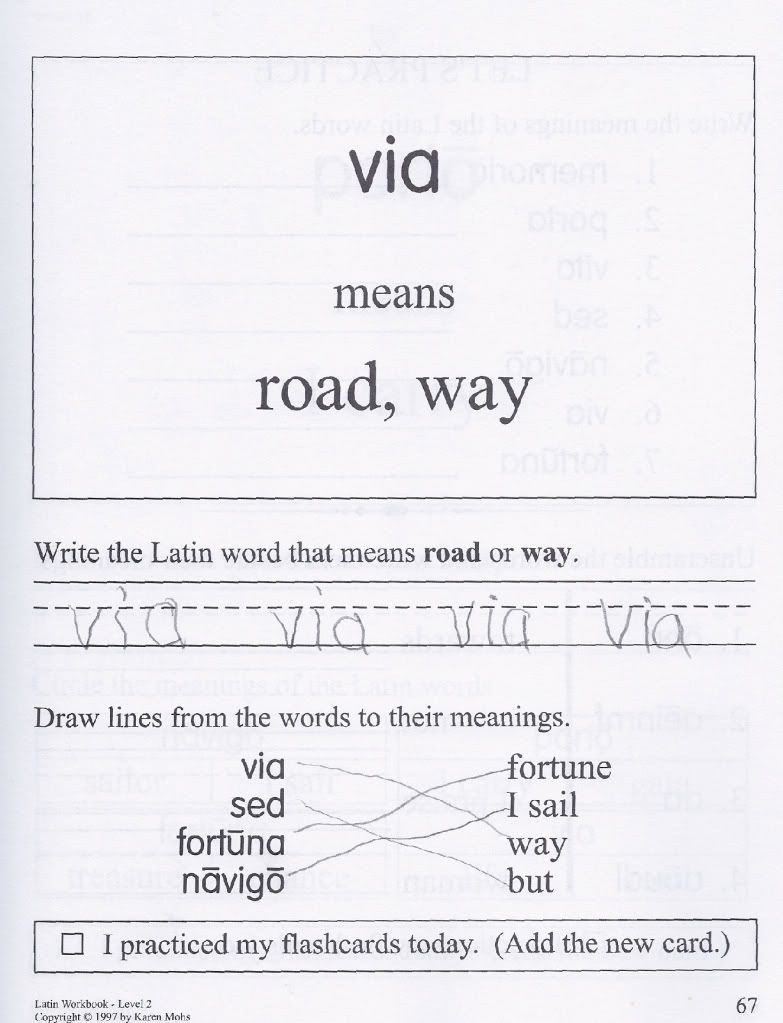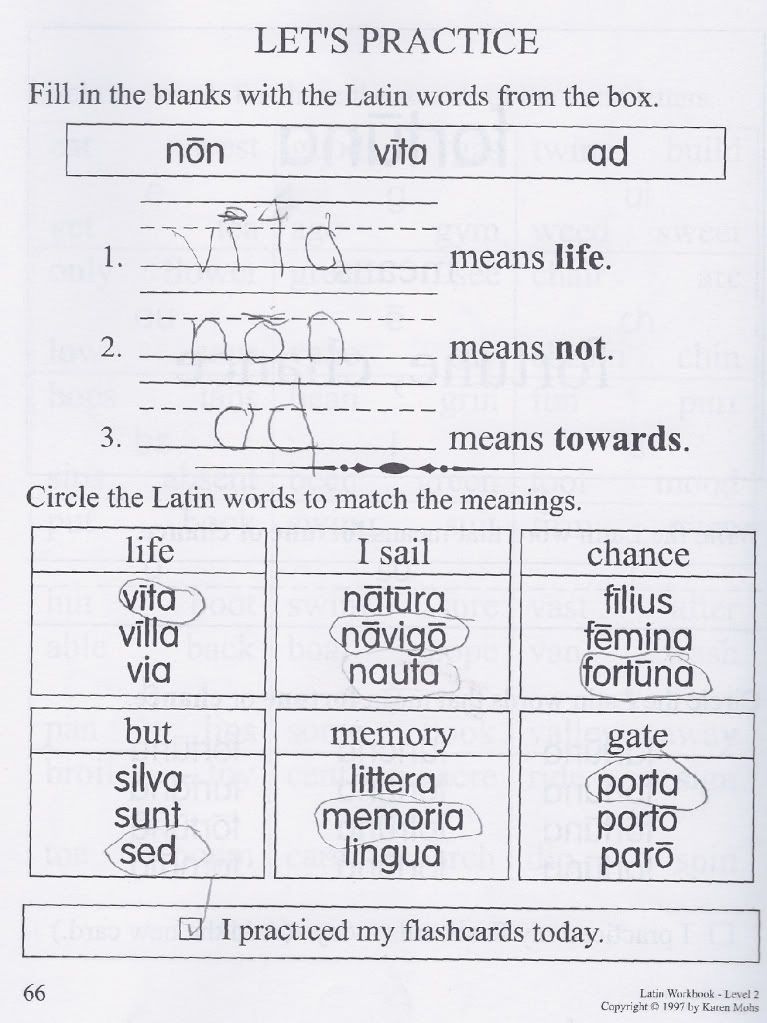
It has always been my intention for Schnickelfritz to study a foreign language. He's taken a few co-op classes that give some Spanish vocabulary along with a study of Latin American culture. Imagine my surprise when we were chosen to do a long-term review of actual Latin. Greek 'n' Stuff provided us with Level 2 of their curriculum Latin's Not So Tough! I looked at the title and certainly hoped so. I had studied French, my husband had picked up some Spanish. The only family member I knew who had studied Latin received her only F in the class, so she wouldn't be of much help. Our materials included a student's worktext ($18.95), a CD pronunciation guide ($10), and an answer key($4). The material could have also been purchased as a kit for $36.45 and included a set of quizzes/exams and flashcards on a key ring. We used the pages in the back of the worktext to cut out and paste our own flash cards.
Although this was our first exposure to Latin, we began with Level 2. Lesson 1 is intended for VERY young students and only covers the alphabet, diphthongs and special consonants. All this material is covered in the first four lessons of Level 2. In the remaining 32 lessons the student will learn 50 vocabulary words, have 5 vocabulary practices and a 2 part final review.

A typical lesson begins with a half-page box showing the word and its definition. The student then practices writing the word while repeating it out loud. The writing space includes a dashed center line common in elementary level penmanship. Next comes a cumulative review of vocabulary learned. This may take the form of true/false questions, drawing connecting lines to words and their definitions, circling the correct word from a series of similarly looking words. This process repeats itself with the second vocabulary word of the lesson. At the bottom of each page is a reminder to practice with the flashcards.

I did appreciate the amount of review built into the program, both the flash cards and review exercises. In my experience with learning French we would study a list of vocabulary around a theme—say learning the names of food, but after the test for that chapter we’d move on to a new theme and never see the words again until the final exam. Rather than set up the typical flash card with a word on the front and English translation on the back, we put each component on its own index card. That way we could play games like Memory. I might hide the English translations around our basement and then hand Fritz one Latin word at a time. He would then race around the basement looking for the match.
The course was true to its name, the Latin we learned was not so tough especially at the pace we learned it. There are 36 lessons so I presume it is meant to cover one year. Fritz was able to move along more quickly. The disappointing factor is that after finishing the book, were still not able to form one complete sentence. It's a good thing the program is designed for elementary students because older children would be very frustrated with the pace. The nouns we learned jumped from obvious choices (boy, girl, son, daughter, water) to things that would seldom come up in normal conversation (trumpet, sword, sailor) The lessons don’t teach us any articles (a, an, the) and I don’t even know if they’re used in Latin. The choice of verbs seemed odd as well (all are taught as the 1st person singular conjugation): I capture, I fight, I seize.
I really had to step back and consider how studying a dead language differs from learning French. I studied to be able to communicate as an exchange student in Rouen. I needed to be able to greet people, ask directions, and make my needs known. Since my son and I will never be traveling to where we need to converse in the language, there’s no need to learn the Latin equivalent of “Ou se trouve les toilettes?”
Since I am not seeking a classical education for my son, where Latin is learned for its own sake, the only benefit we would have for studying it is to give insight into derivatives of Latin words and prefixes in our own English language. This made the vocabulary choices of the course make more sense. I could see that “patria,” meaning “native land” is the basis for our English word “patriotism.” The text however makes no such mention of the similarities.

If you our interested in the curriculum, you can find sample pages and Tables of Content for all six levels of Latin's Not So Tough on their website. You may also want to check out their eight levels of Hey Andrew! Teach Me Some Greek or Bible Study Series. You can see what my fellow Homeschool Crewmates thought of all these Greek 'n' Stuff products by clicking here.

No comments:
Post a Comment